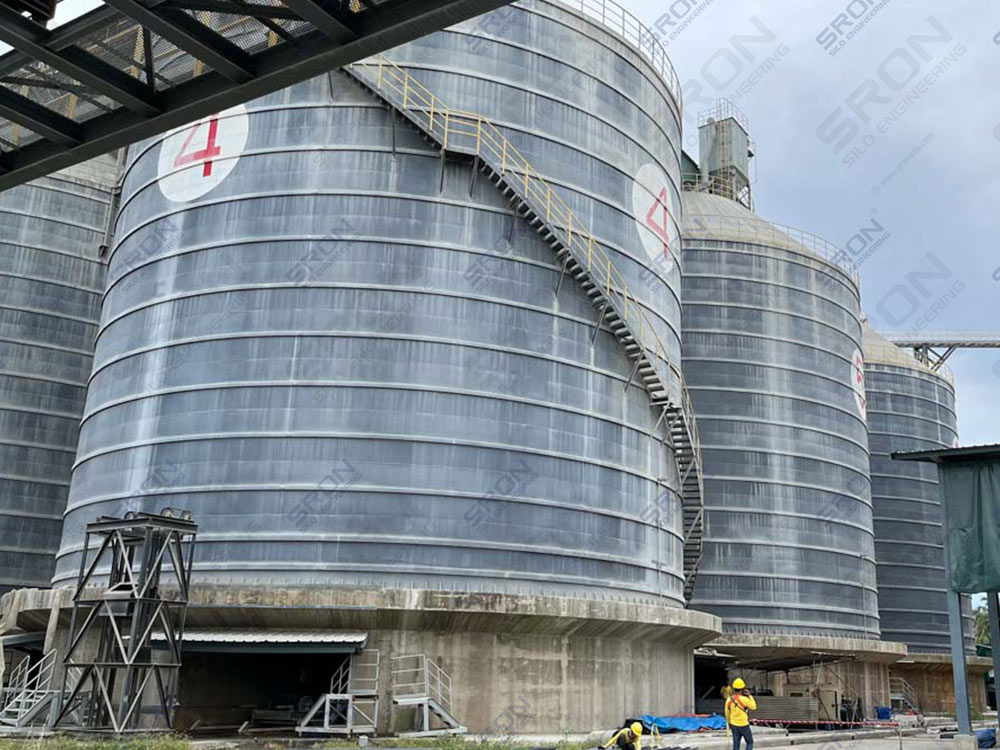What You Should Take Into Consideration Before Constructing a Cement Storage Silo?
Cement Silo Introduction
Cement steel silo is a facility used to store and protect cement. It is corrosion-resistant, wear-resistant, waterproof and moisture-proof. Cement silos are usually made of high-strength steel plates. These steel plates can be customized as needed to adapt to different sites and storage needs. They are widely used in cement plants, construction sites, concrete mixing stations and other places for temporary or long-term storage of cement.(4).jpg)
Capacity Planning: Estimate cement storage capacity based on demand and select appropriate storage silo capacity. Taking into account the possibility of future capacity expansion, ensure that the storage silo has certain storage flexibility.
Structural Design: Design the structure of the storage silo, including the silo body, silo roof and foundation. Taking into account the weight and stability requirements of the cement, ensure that the storage silo has sufficient strength and stability.
Foundation Investigation and Preparation: Ensure that the foundation can bear the weight and pressure of the cement silo to avoid collapse of the cement silo. This includes producing detailed foundation plans, taking into account factors such as the cement silo's height, weight, leg heights, etc., and ensuring that the design of the foundation plans takes into account natural climate conditions such as high winds, rainfall, and earthquakes.
Waterproof and Moisture-proof Measures: Cement is very sensitive to moisture, so the design of the cement silo should take into account waterproofing and moisture-proofing. This includes ensuring that the roof and walls of the cement silo are effectively protected from rainwater penetration, and that there is good ventilation inside the silo to reduce moisture.
Site Selection: Choose a location suitable for building a cement storage silo, taking into account the stability of the land, drainage conditions, transportation convenience, etc.
Safety Facilities: Ensure that the cement storage silo has necessary safety facilities, such as fire prevention measures and fire-extinguishing equipment.
Environmental Impact Assessment: Consider the impact of building a cement steel silo on the surrounding environment, conduct an environmental impact assessment, and take corresponding environmental protection measures.
Compliance with Laws and Regulations: Ensure that the construction of cement silos complies with local construction codes and laws and regulations, and obtain necessary construction permits and approvals.
.jpg)
Temperature and Humidity Control: The storage temperature of cement is usually between 5-30 degrees Celsius, and the humidity is controlled below 60% to avoid moisture absorption, agglomeration and quality degradation of cement. Ventilation systems and humidity control facilities can help maintain suitable storage conditions.
Protection Measures: The cement storage area should have appropriate fire protection facilities, such as firewalls, fire-fighting equipment, etc., as well as dust-proof facilities to avoid the impact of dust on the cement.
Safety Signs and Operating Specifications: The storage area should have clear safety signs, including identification of stored items, safety warning signs, etc., and corresponding operating specifications should be formulated to ensure that operators can store cement safely and standardizedly.


Comments
Post a Comment